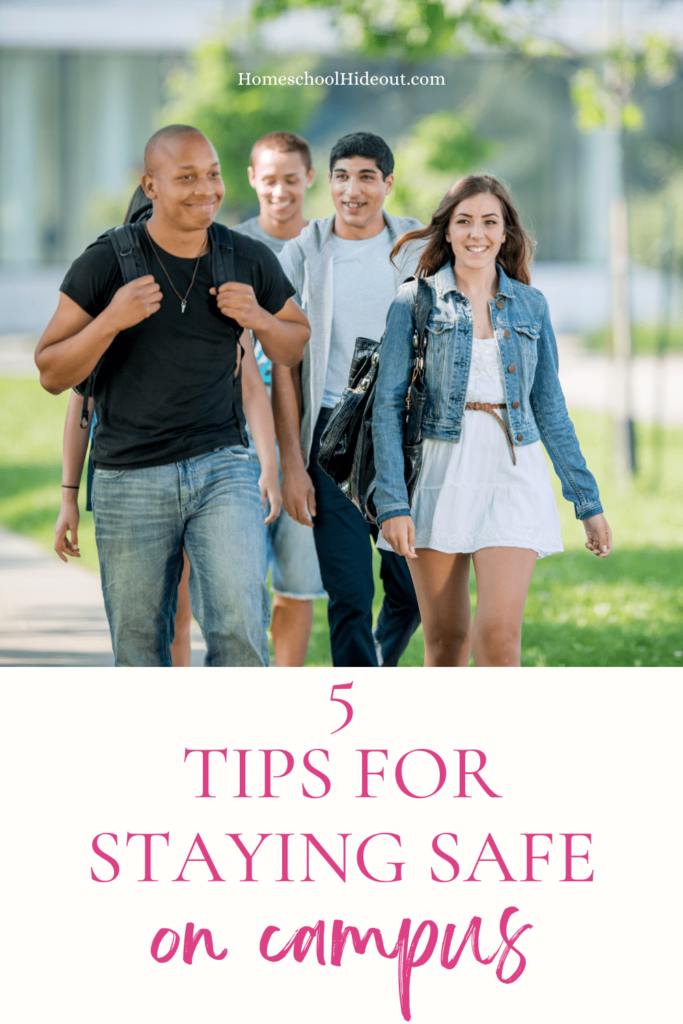5 Tips to Stay Safe on Campus: Ensuring your safety on campus is paramount, and when it comes to secure and comfortable living, explore the tips provided while considering student housing at York University, where a supportive environment plays a crucial role in your overall well-being.
A recent study found robbery to be the number 1 crime on college campuses. If you’re a student, you need to know how to keep your belongings safe. You also need to know how you can help make the campus safer for other students.
School cameras and security features aren’t enough on their own. You need to participate in security to keep your campus safe.
If you’re a student or about to begin college, keep reading. This guide contains essential information that can keep yourself, your belongings, and other students safe on campus.
5 Tips to Stay Safe on Campus
Safeguard Your Student ID
Your student ID is your way to enter buildings around campus. It might even be the key to your dorm room or housing facility. Many universities are adopting keycard access control systems. This eliminates the possibility of lock picking and allow students more convenience when entering and exiting buildings around campus.
If you lose your student ID, this could be a massive security breach. If an unauthorized user steals or finds your card, they can easily use it to access student spaces that should be secure. This gives them a chance to burglarize from the campus or harm students and staff.
You’re responsible for safeguarding your student ID to ensure this incident doesn’t occur.
Here are some best practices, tips, and tricks, to help you keep your student ID safe on campus:
- Don’t lend your ID card to other students. If you lend it to another student, you don’t know when you’ll get it back. You might end up unable to get to your classes. Or, your friend might lose your ID or leave it in an unsafe place.
- Don’t lend your ID to non-students. If you lend your ID to someone who isn’t a student, this is a security breach. Student spaces should be for students alone, and unauthorized users should never be given a student ID.
- Keep your ID on a lanyard. It’s easy to lose your ID when you’re traveling to college and navigating your way around campus. To ensure you always know where your ID is, it’s wise to keep it on a lanyard around your neck.
- Store your lanyard in a safe place. When you don’t need it, try and keep your lanyard in the same spot so you can always find it. Make sure this place is secure, and nobody can access your card without your knowledge.
If you follow these practices, you should be able to prevent another student or an unauthorized user from obtaining your ID. These simple steps go a long way toward making your campus safer.
You should contact campus security if you’re new on campus and need a replacement ID. They can provide you with a new card and deactivate the old one to prevent a security breach.
Don’t Allow Tailgating
You’ll likely see many faces you don’t recognize when navigating your way to class. It can be challenging to know who’s a student or a faculty member and who isn’t.
To ensure you don’t allow an intruder on to university property, you shouldn’t allow others to tailgate behind you when entering university buildings. Although it’s polite to hold the door open for others, you can’t be sure that you’re not keeping it open for an intruder.
It’s best not to allow tailgating and ensure the door closes behind you when you enter a building.
Don’t Keep Doors Propped Open
When you prop open a door on campus, you open up the building to anyone. If an intruder spots an open door, they can quickly enter the building. This gives them access to sensitive campus resources and put student safety at risk.
You may be able to prop a door open if it opens to an area with a secure perimeter. However, it’s best to avoid leaving doors open, as you may forget you left them open, leaving the building vulnerable.
Keep Your Door Locked At All Times
When you’re in your college accommodation, you should always keep your door locked. It would help if you locked the door outside the house or in your suite. Often, college accommodation is shared – which means you don’t know who your dorm mates will be bringing into the housing.
To protect yourself from theft and from others entering your room and invading your privacy, you should always keep your door locked. A zero-trust policy is best. That means you shouldn’t allow your dorm mates to enter your room without express permission.
If You See Something, Say Something
If campus police aren’t aware of a threat to campus or student safety, they will not be able to address it. Many colleges are implementing mobile alert systems. This allows students to send an alert directly to campus security if they see something suspicious.
If you see an intoxicated person walking home alone or with others, you should contact campus security to ensure they get home safely. Or, if you see someone suspicious on campus property disturbing students, you should report it.
By letting campus security know of an incident, you can help them to resolve the threat and maintain safety on campus.
Summary
If all students took on responsibility for keeping campuses safe, crimes on college property would significantly decrease. Consider the tips and advice in this article, and adapt your daily habits to help keep yourself and others safe on campus. Campuses should be secure and safe spaces for students to learn, grow, and begin their transition to independent life as an adult.







